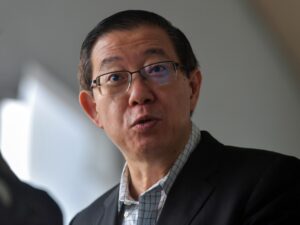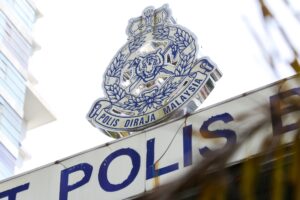KUALA LUMPUR, Sept 15 — A Johor Bahru-based NGO has warned of syndicates recruiting local youths as couriers to smuggle vapes and cigarettes into Singapore, citing 77 such cases between October 2024 and July 2025.
The Singapore Accident Help Centre said young men are being lured with quick cash to deliver packages across the Causeway, often under the impression they are carrying harmless goods.
Social worker Farizatul Firdaus told The Straits Times that most of those recruited were jobless, making them easy targets.
Among them are Haz and Amin (not their real names), both in their early 20s, who said they were promised RM1,000 to deliver boxes described as “betel leaves” to Singapore.
They made one trip successfully but were caught at Woodlands Checkpoint on a second run when authorities uncovered more than 300 vape packs inside the boxes. Their passports remain held in Singapore while investigations continue.
Vape syndicates in Johor have employed multiple smuggling methods, hiding products in cars, vans, buses, trailers and even motorcycles. Singapore authorities reported seizing more than 15,000 vapes and related parts at land checkpoints in June and July alone.
Johor authorities have also intercepted shipments.
On August 6, more than 7,600 vape pods were found in a lorry at the Sultan Abu Bakar Complex near Tuas Checkpoint, according to The Star.
Although Johor banned vape sales in 2016, the devices are still widely sold in Johor Bahru. Some sellers even push drug-laced products like Kpods through Telegram groups, offering discreet delivery.
Industry insiders said couriers are usually paid between RM1,000 and RM5,000 per trip.
Haz and Amin said they were recruited by an acquaintance, “Fir”, and pressured into a second run after being told they would otherwise lose half their promised fee.
They grew suspicious when boxes were loaded into their car by an older man believed to be a syndicate boss, but pressed ahead.
They were stopped at Woodlands Checkpoint and arrested.
“We tried contacting him (Fir), but he was unreachable. That was when we knew we were done for,” Haz said. He later admitted his share was just RM100.
“I regret my actions. For such a small amount of money, it was not worth it.”
Singapore, which banned vapes in 2018, has seen seizures rise sharply.
Products worth S$41 million (RM134 million) were confiscated between January 2024 and March 2025, nearly five times more than between 2019 and 2023.
From September 1, the government tightened border checks and introduced harsher penalties.
Malaysia, meanwhile, is moving towards a nationwide ban in phases, starting with refillable open-system devices.
Health officials revealed that most seized vape liquids in 2023 and 2024 contained dangerous drugs, prompting calls from doctors for a full ban.
Industry groups argue that a total prohibition would damage local entrepreneurs and want only drug-laced products outlawed.





